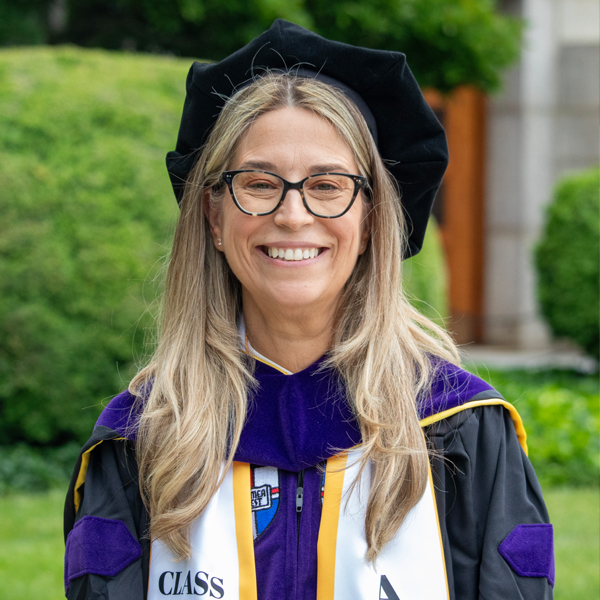 To strive for leadership through scholarship and research illuminated by Catholic values is at the core of The Catholic University of America’s newly unveiled brand, Lead with Light. Among those Catholic values are charity, humility, and a care for the common good informed by the ancient Roman maxim of Terence, “I am human, considering nothing human alien to me.” Many recognize these values and labor to manifest them in their daily life, but the challenge of incorporating them as an ethos always remains. Julie Orlando ’24 is one such example of a Catholic Law community member who has taken upon her shoulders that challenge—and done so successfully.
To strive for leadership through scholarship and research illuminated by Catholic values is at the core of The Catholic University of America’s newly unveiled brand, Lead with Light. Among those Catholic values are charity, humility, and a care for the common good informed by the ancient Roman maxim of Terence, “I am human, considering nothing human alien to me.” Many recognize these values and labor to manifest them in their daily life, but the challenge of incorporating them as an ethos always remains. Julie Orlando ’24 is one such example of a Catholic Law community member who has taken upon her shoulders that challenge—and done so successfully.
Since enrolling at Catholic Law in 2019, Orlando has become seemingly ubiquitous, maintaining various roles during her legal studies, from those of a student in the Law and Technology Institute (LTI) and the president of the Latin American Law Students Association (LALSA), to others such as a court-certified student attorney at the Families and Law Clinic (FALC) and, most recently, a fellow at the Columbus Community Legal Services (CCLS). Conventional wisdom would dictate that any résumé exhibiting such dedication is overwhelmingly impressive—but her accomplishments become arguably more so when her role as a full-time, single mother of three comes into play. Her undertaking might make many question if there are limits to how high humanity can soar. Yet her admiration for Catholic Law reflects something greater: a commitment to humanity, impelled by a value for the shared experience that everyone facing adversity confronts, that is neither new nor insincere, and echoes the Catholic values which the Law School holds dear.
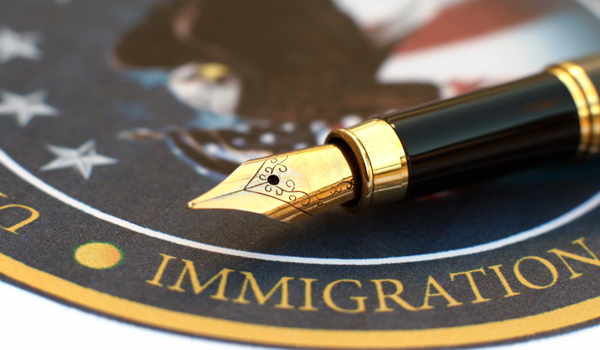 Orlando’s commitment began in 1981, when she as a child journeyed with her parents to the United States, fleeing the military dictatorship that had seized the reins of power in their native Argentina and initiated an infamous military campaign against suspected dissidents. At that time, procuring citizenship in the United States meant navigating a labyrinth. Many immigrants struggled to maneuver the various hindrances established by bureaucracy and paperwork. Some, including Orlando’s parents, were able to turn to immigration attorneys, who provided direction and guidance during the citizenship application process. For Orlando herself, this twofold human experience—of watching her parents, as well as other immigrants, plot a course to citizenship, and of working with attorneys and counselors who facilitated that end goal—left a deep impression.
Orlando’s commitment began in 1981, when she as a child journeyed with her parents to the United States, fleeing the military dictatorship that had seized the reins of power in their native Argentina and initiated an infamous military campaign against suspected dissidents. At that time, procuring citizenship in the United States meant navigating a labyrinth. Many immigrants struggled to maneuver the various hindrances established by bureaucracy and paperwork. Some, including Orlando’s parents, were able to turn to immigration attorneys, who provided direction and guidance during the citizenship application process. For Orlando herself, this twofold human experience—of watching her parents, as well as other immigrants, plot a course to citizenship, and of working with attorneys and counselors who facilitated that end goal—left a deep impression.
“For my family, our immigration attorneys were the people in our lives that represented hope,” Orlando reflected during an interview with Catholic Law. “As a child I remember being struck with the realization that without them our life would have been completely different. While I may not have been able to fully understand the magnitude of their work, I knew even at that early age the responsibility and privilege that was involved, and it was something that spoke deeply to me.”
Although she had dreamed of pursuing a legal vocation since she was six years old, it was not until after she had established a career as a professional, non-profit-association executive that she decided to move forward and apply to law schools along the East Coast. After touring Catholic Law, Orlando was enamored with the School: Everything it offered, from the campus amenities and research support to the career opportunities and supportive community, signaled to her that it was the place that she wanted to eventually call her Alma Mater.
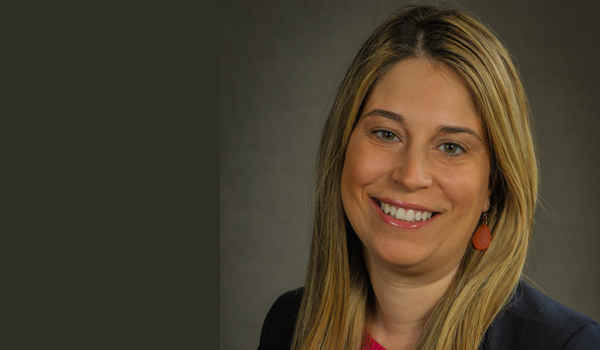 No matter where she enrolled, she nevertheless recognized that her decision would affect not only her but also those around her, for by then she was mother to a nine year old, a six year old, and a three year old. “I knew that I wouldn’t be able to pursue this dream unless they and my support system were all in,” she noted. “And, while they were too young to understand what it meant to be all in, they understood on some level that it was something that was very important to me and wanted to support me as best they could.” And support her they did. In essence, her time at Catholic Law was a family affair. Insofar as it made Orlando feel at home, Catholic Law became a second home for her children.
No matter where she enrolled, she nevertheless recognized that her decision would affect not only her but also those around her, for by then she was mother to a nine year old, a six year old, and a three year old. “I knew that I wouldn’t be able to pursue this dream unless they and my support system were all in,” she noted. “And, while they were too young to understand what it meant to be all in, they understood on some level that it was something that was very important to me and wanted to support me as best they could.” And support her they did. In essence, her time at Catholic Law was a family affair. Insofar as it made Orlando feel at home, Catholic Law became a second home for her children.
“They’ve sat with me through classes, attended events, and even read cases,” Orlando remarked jovially. “Not only do the kids love this community for the affection they’ve been shown, but they’ve also grown to appreciate the work of our professors. Over their Easter break last year, the kids and I read Professor Drinan’s book The War on Kids: How American Juvenile Justice Lost its Way. My daughter even did a book report on it for her literature class!”
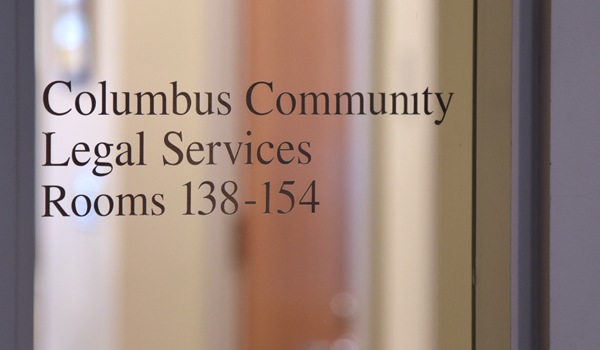 While her time as a law student saw her juggle playing the parts of parent and student, Orlando’s commitment to humanity never wavered. As a court-certified student attorney at CCLS, she aided clients with settling financial matters with the Internal Revenue Service (IRS), helped families with obtaining legal custody of their children, and assisted detained individuals with beginning their applications for American citizenship—much like those influential immigration attorneys did for her family four decades ago. Such dedication was no small feat: At her graduation, Orlando was among a handful of graduates who were recognized for dedicating more than 150 hours to pro-bono service.
While her time as a law student saw her juggle playing the parts of parent and student, Orlando’s commitment to humanity never wavered. As a court-certified student attorney at CCLS, she aided clients with settling financial matters with the Internal Revenue Service (IRS), helped families with obtaining legal custody of their children, and assisted detained individuals with beginning their applications for American citizenship—much like those influential immigration attorneys did for her family four decades ago. Such dedication was no small feat: At her graduation, Orlando was among a handful of graduates who were recognized for dedicating more than 150 hours to pro-bono service.
“As students, we are being taught by our professors to be stewards of the profession,” she explained, thinking about the staggering amount of time she had dedicated to the clinical program. “By doing so, we are able to harness what we’ve learned in the classroom and combine it with the service to those who don’t have the access or opportunity to obtain legal representation. The ability to provide that kind of service for others is a privilege few people get to experience in life.”
 Part of her commitment to humanity is rooted in a profound gratitude toward the Catholic Law administration and faculty. While profusely thanking her instructors in the clinic and the classroom, Orlando highlighted the mentorship of Stephen Payne, Dean and Knights of Columbus Professor of Law, who taught her “that second chances in life are possible.” With equal vigor she did the same for that of Katherine Crowley, Associate Dean for Administration and Chief of Staff, who was, in Orlando’s words, “willing to have difficult conversations and loving me enough to encourage and support me to keep going when the odds were against me.” Alongside Crowley, she placed well-known professors like Cara Drinan, Megan La Belle, Catherine Klein, and Heidi Schooner, as living examples of the type of lawyer she aims to be.
Part of her commitment to humanity is rooted in a profound gratitude toward the Catholic Law administration and faculty. While profusely thanking her instructors in the clinic and the classroom, Orlando highlighted the mentorship of Stephen Payne, Dean and Knights of Columbus Professor of Law, who taught her “that second chances in life are possible.” With equal vigor she did the same for that of Katherine Crowley, Associate Dean for Administration and Chief of Staff, who was, in Orlando’s words, “willing to have difficult conversations and loving me enough to encourage and support me to keep going when the odds were against me.” Alongside Crowley, she placed well-known professors like Cara Drinan, Megan La Belle, Catherine Klein, and Heidi Schooner, as living examples of the type of lawyer she aims to be.
“My seventeen year old son who is a high school junior has developed an interest in criminal law after attending several of Professor Drinan’s class, and my youngest child carries around in his backpack a mini constitution Professor Rienzi distributed to students during my 1L year and is fascinated by First Amendment law,” she said. “That is a true testament of the power of education, and something that I think makes CUA Law stand out in a way few schools can.”
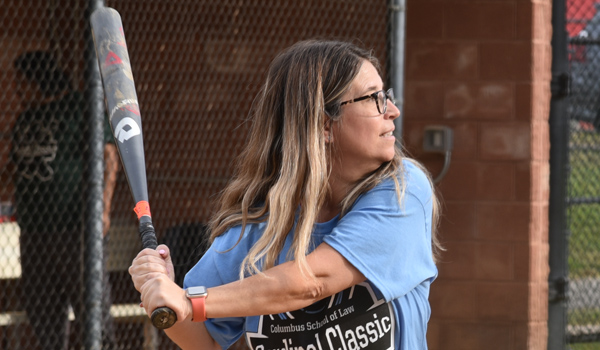 Yet, Orlando herself leaves an influence that touches more than just her clients, colleagues, and coworkers. Her children—now seventeen, thirteen, and eleven years old—have watched for six years their mother’s Herculean effort. “Most people my age don’t really know their mom; but seeing her go to law school, I saw my mom go through her lowest lows and highest highs,” said her oldest son Lucas. His youngest sibling Julian concurred: “She’s been through a lot of challenges and has worked very hard for this.”
Yet, Orlando herself leaves an influence that touches more than just her clients, colleagues, and coworkers. Her children—now seventeen, thirteen, and eleven years old—have watched for six years their mother’s Herculean effort. “Most people my age don’t really know their mom; but seeing her go to law school, I saw my mom go through her lowest lows and highest highs,” said her oldest son Lucas. His youngest sibling Julian concurred: “She’s been through a lot of challenges and has worked very hard for this.”
“I would say I learned many things, but the one that I think really sticks out is sometimes it feels like there’s no possibility that you can do something,” her daughter Bella added. “However, if you really want to, and believe that you can, nothing will stand in your way. The only person who has the ability to change your future is you, and no one else.”
There is no question that Orlando appreciates her family’s pride and reciprocates it with thankfulness, having referred to her children and parents as “the unsung heroes of this entire journey.” From her viewpoint, it was their support that sustained her fervent commitment. “Their unconditional love and support have been the catalyst for all of this,” she said. “My love for them and my desire to want to make them proud was what fueled me to keep going.”
This extremely human sentiment, coupled with that message of hope eloquently articulated by her daughter, is fundamental to Orlando’s ethos. “I walked into CUA Law as a person with a childhood dream and emerged as an attorney equipped and ready to live out a vocation,” she said, ruminating one last time on her experience at Catholic Law. “How does one repay such a gift?”
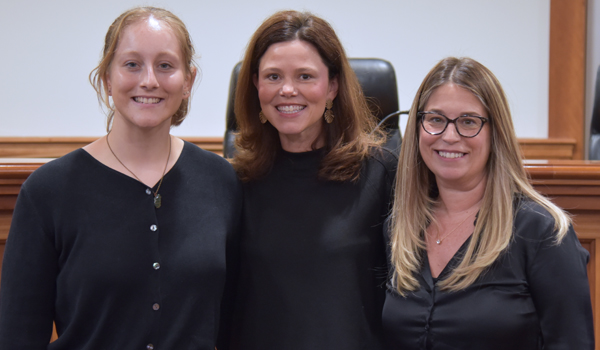
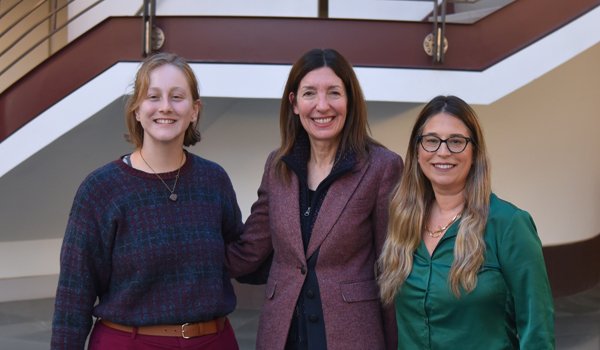
Meet the Professor Series photos featuring Julie Orlando and Taylor Skala '24 with Professors Drinan, Schooner, and La Belle
May 16, 2024 - Julie Orlando speaking at the 2024 Class Dinner with her audience participation prompter, Julian
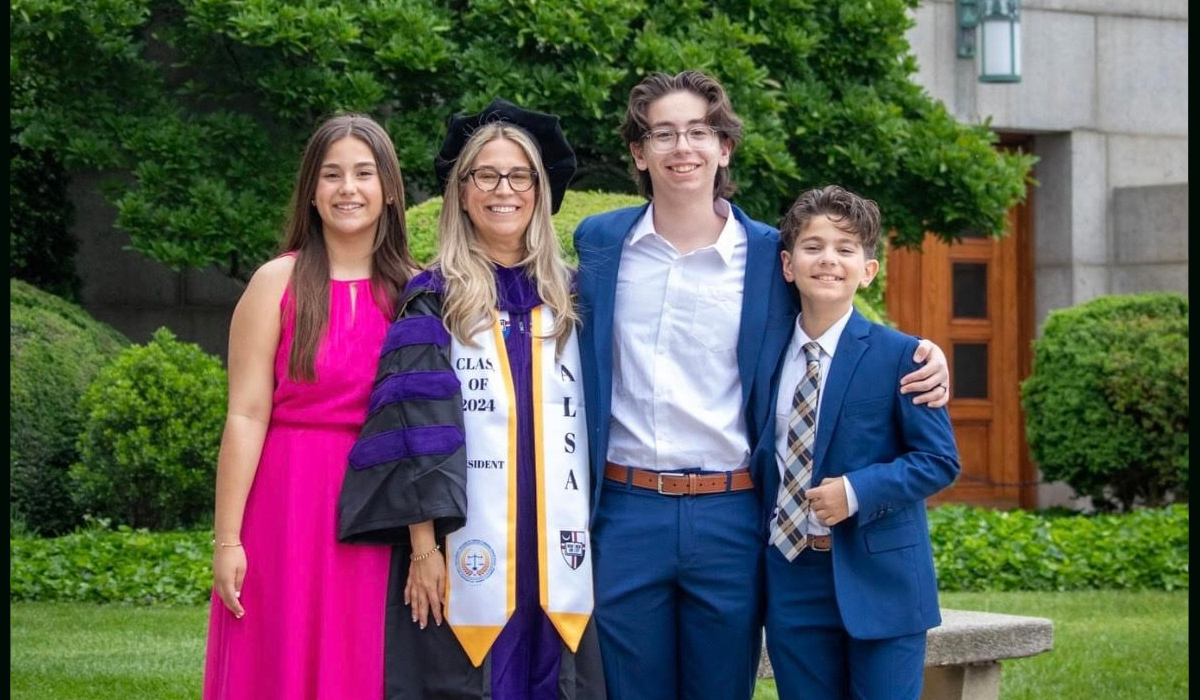
May 17, 2024 - Julie Orlando with her children after Commencement
